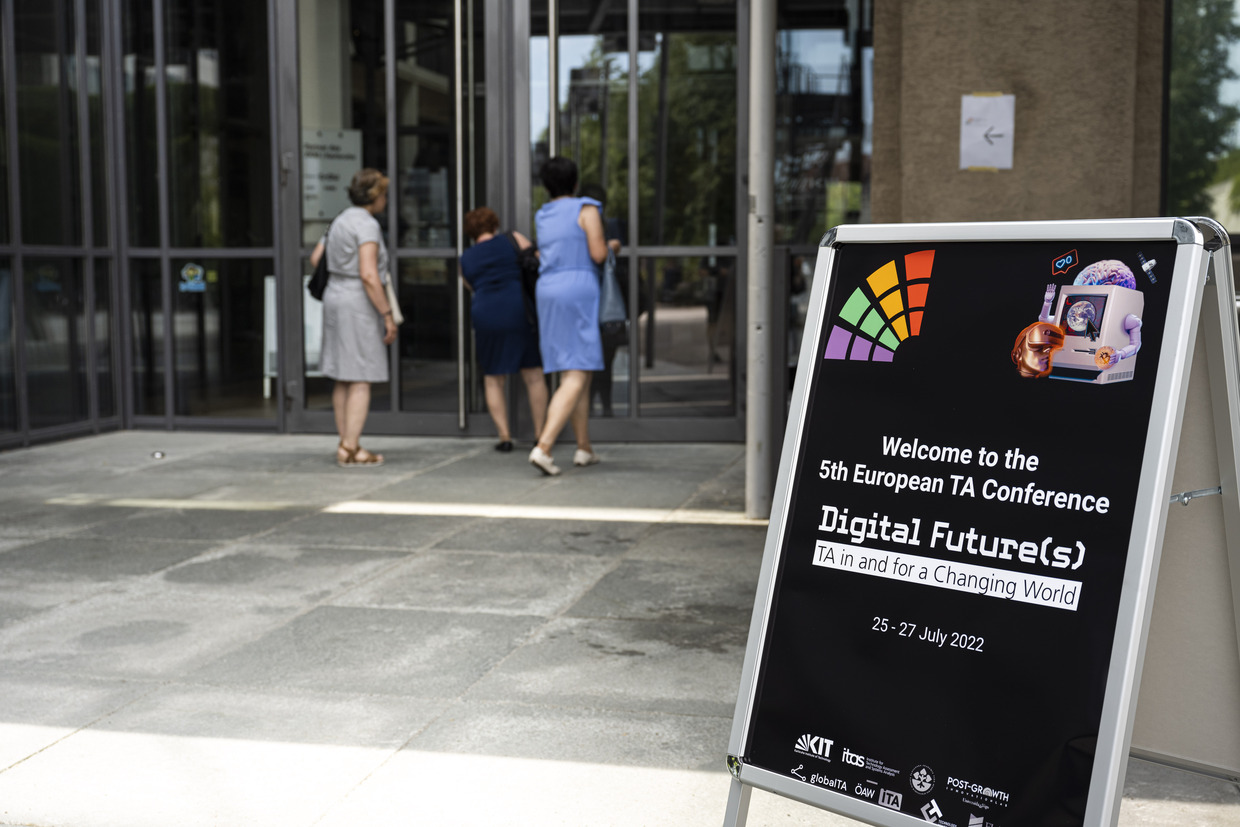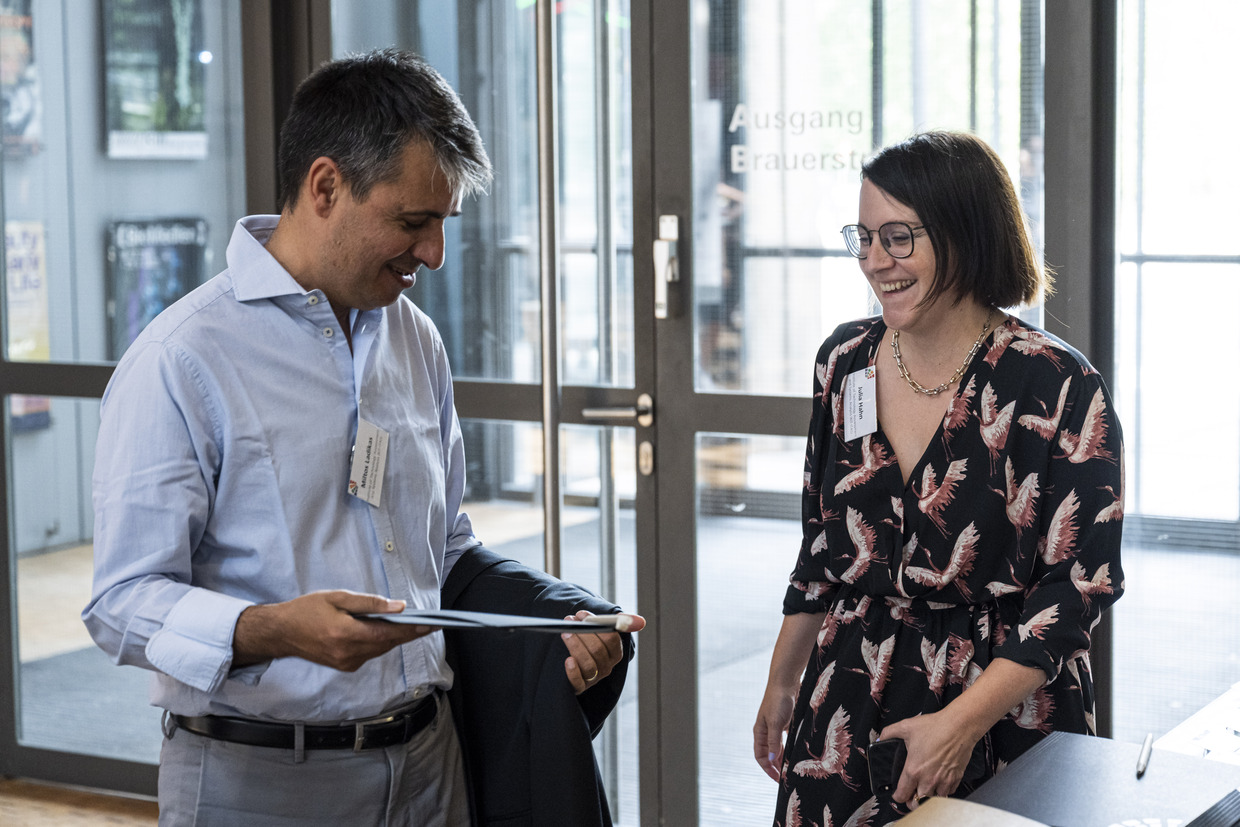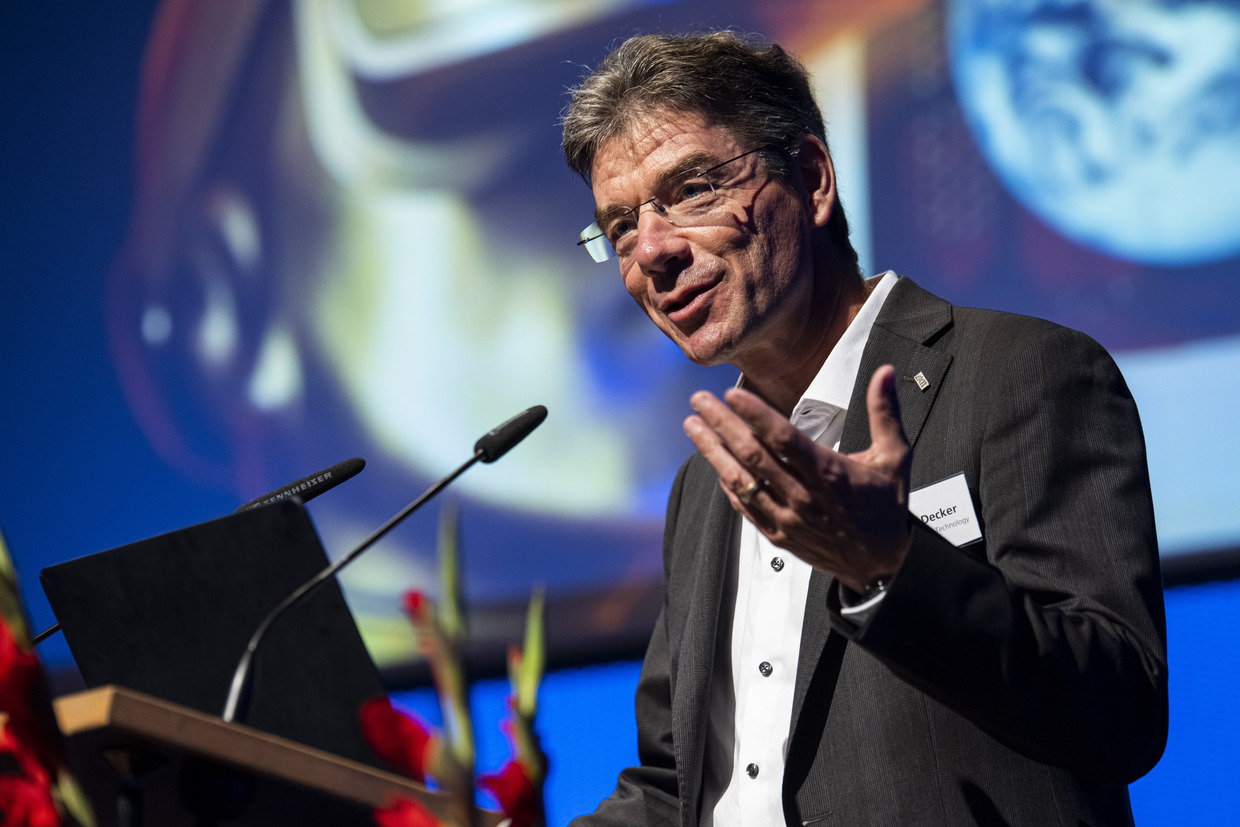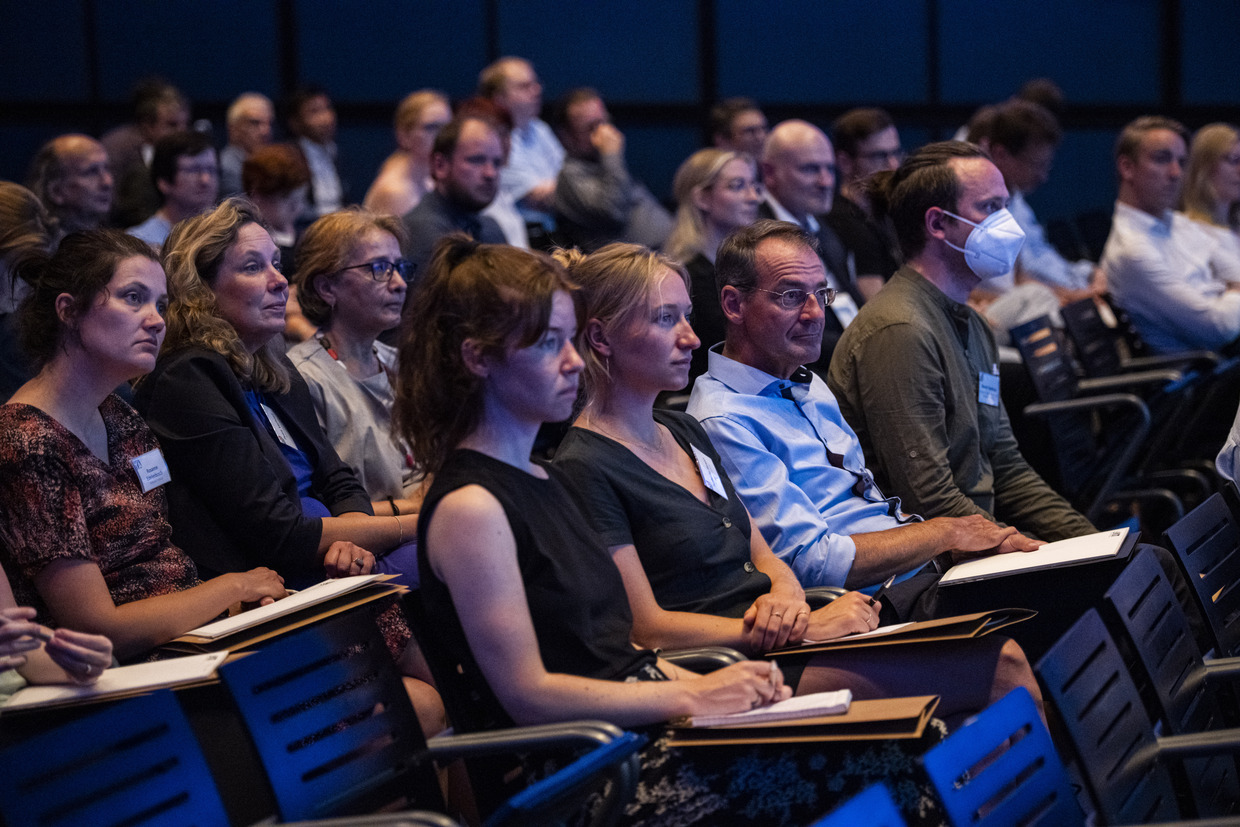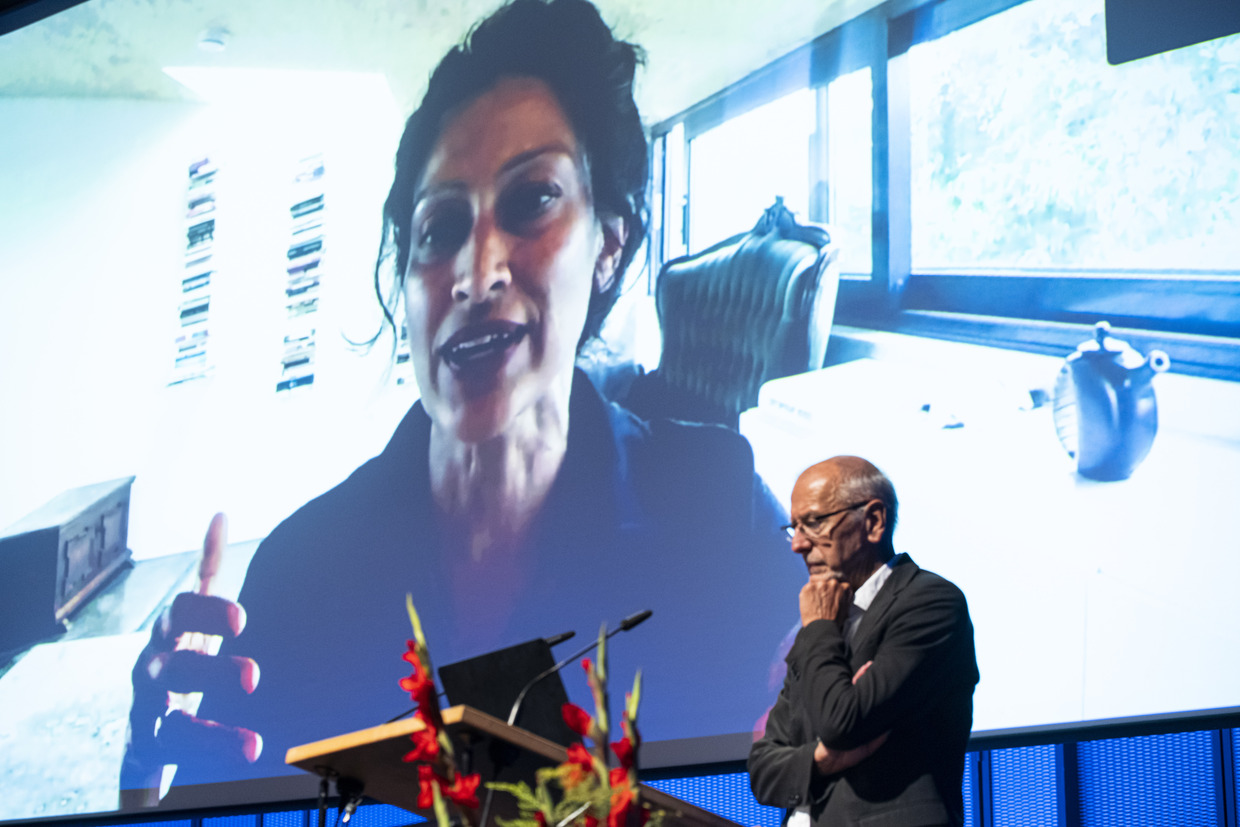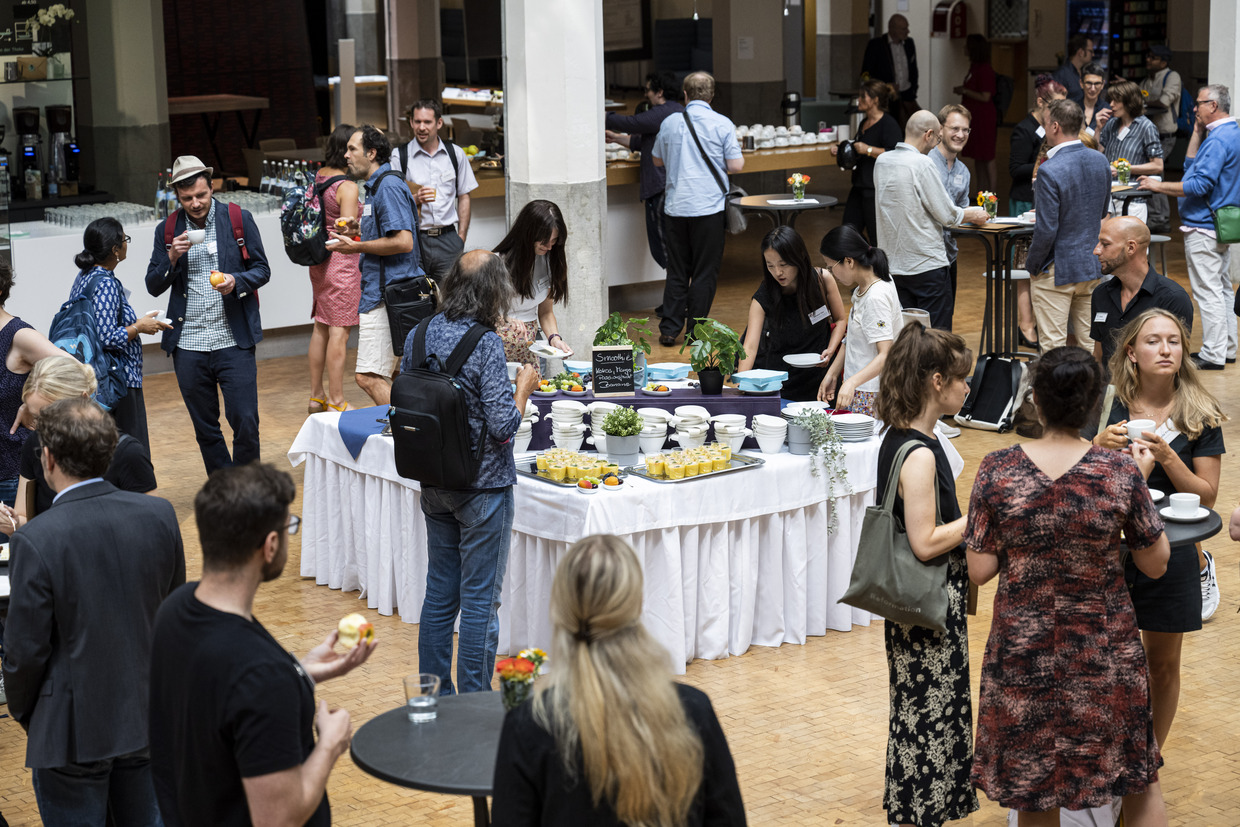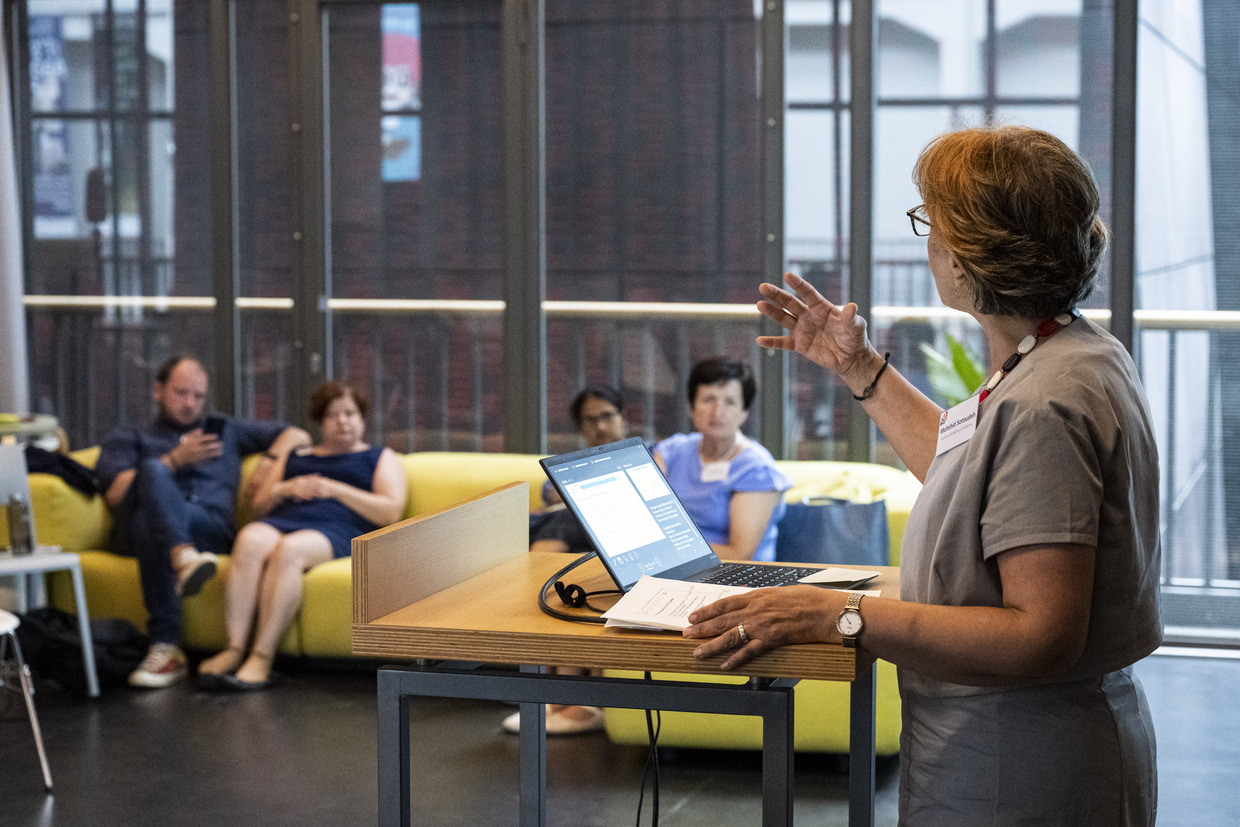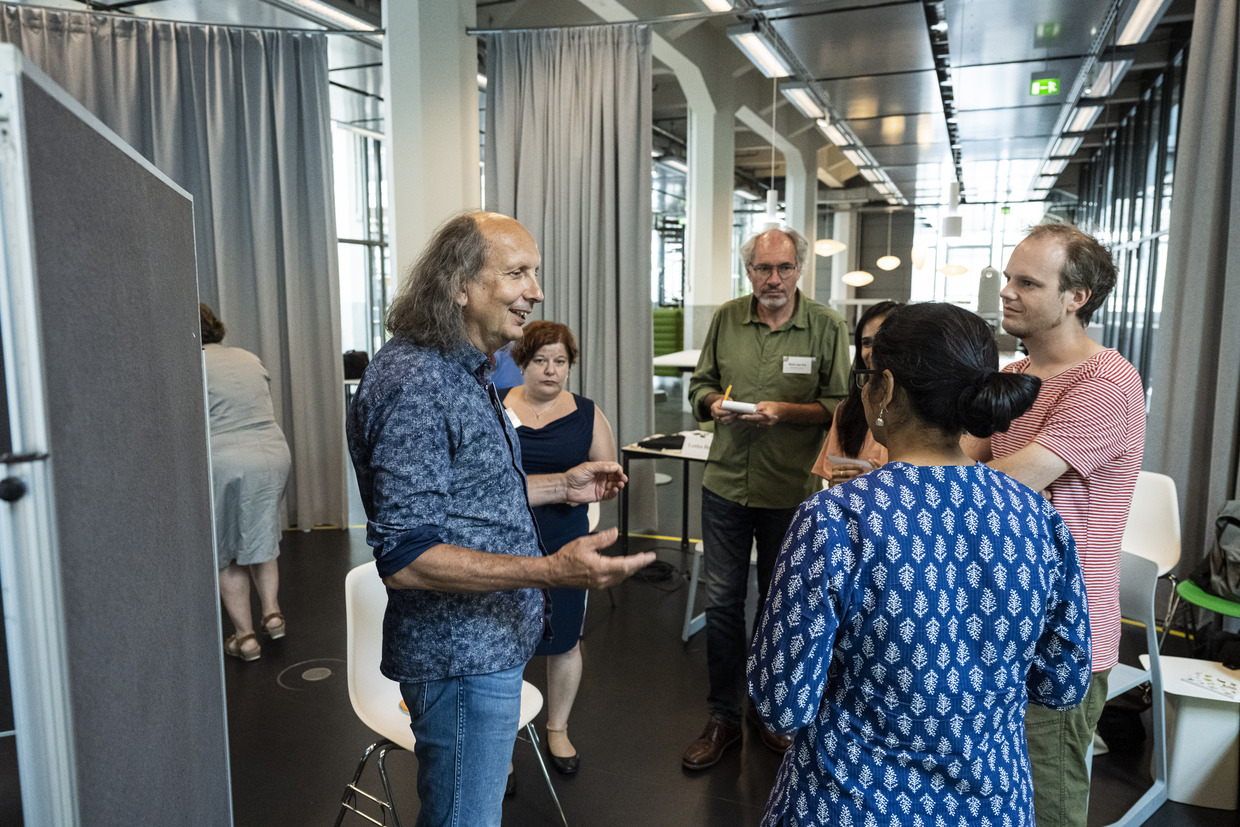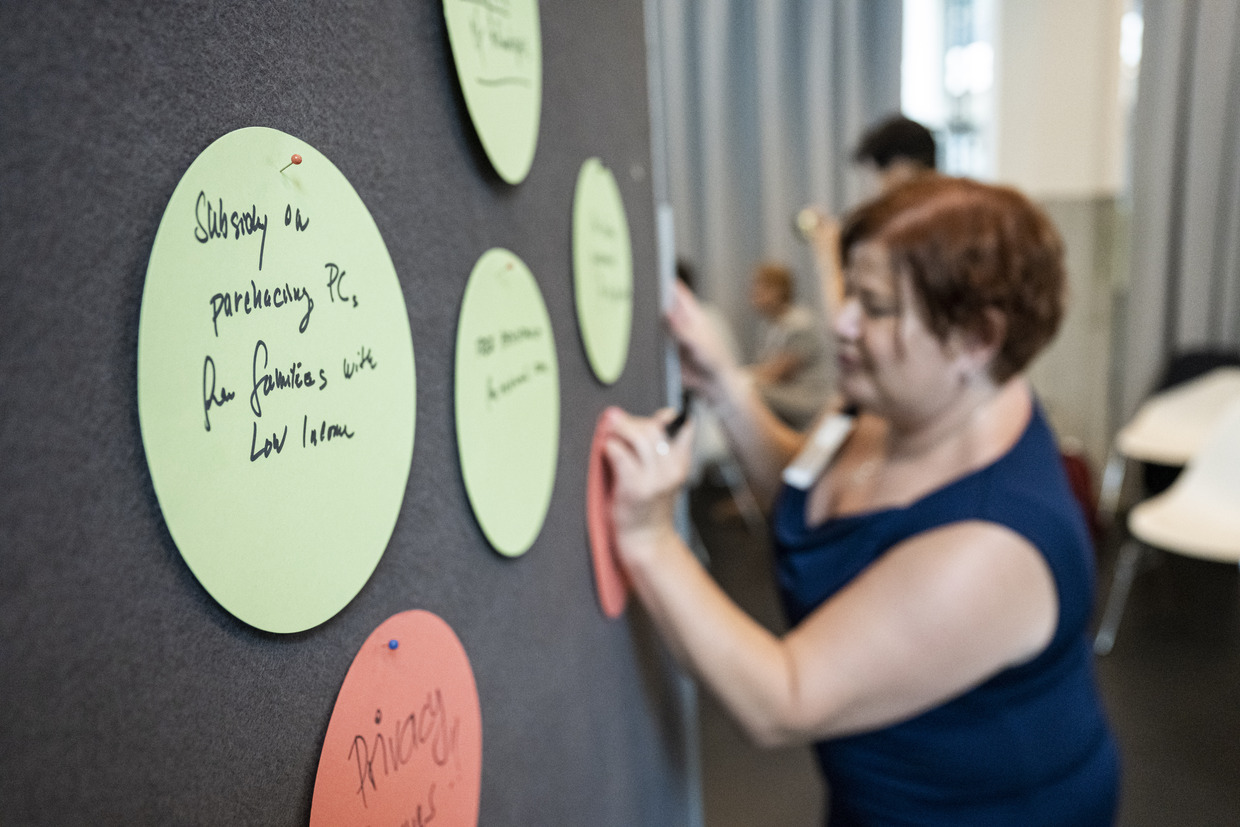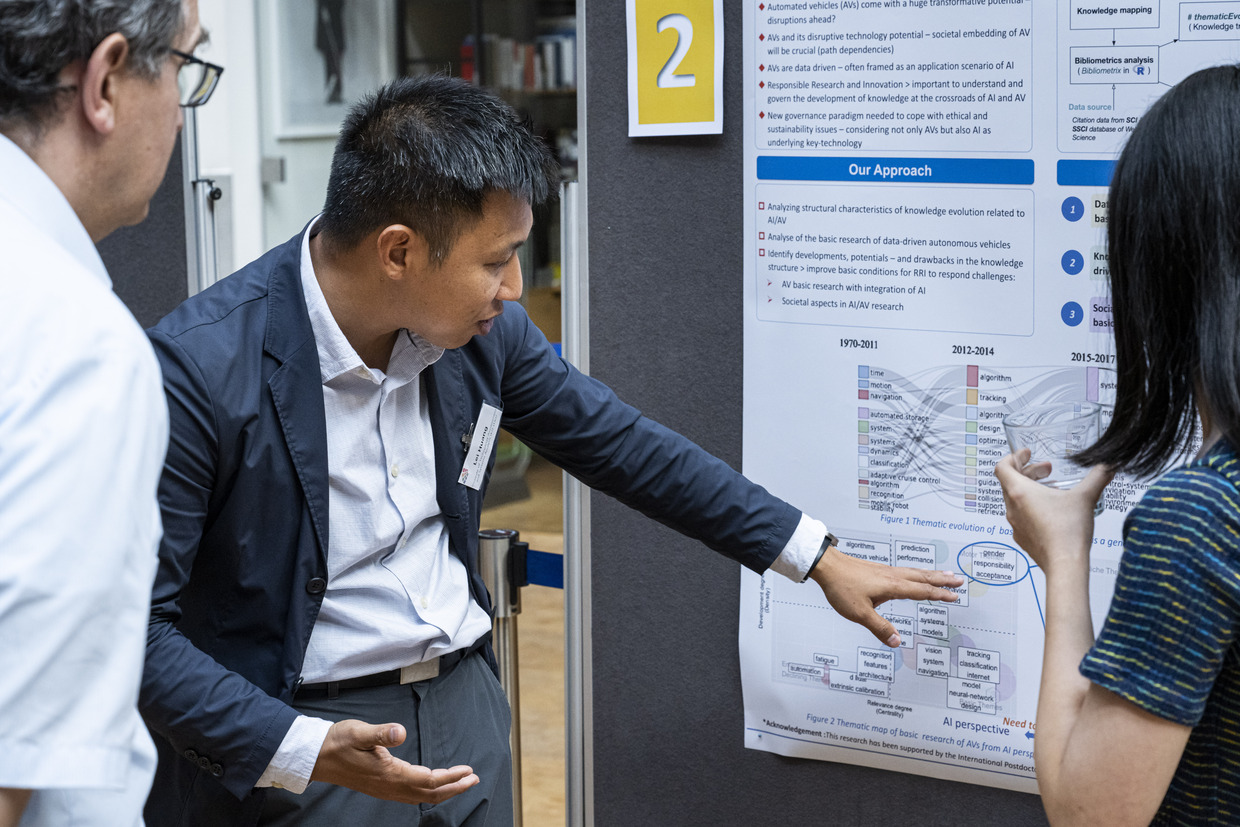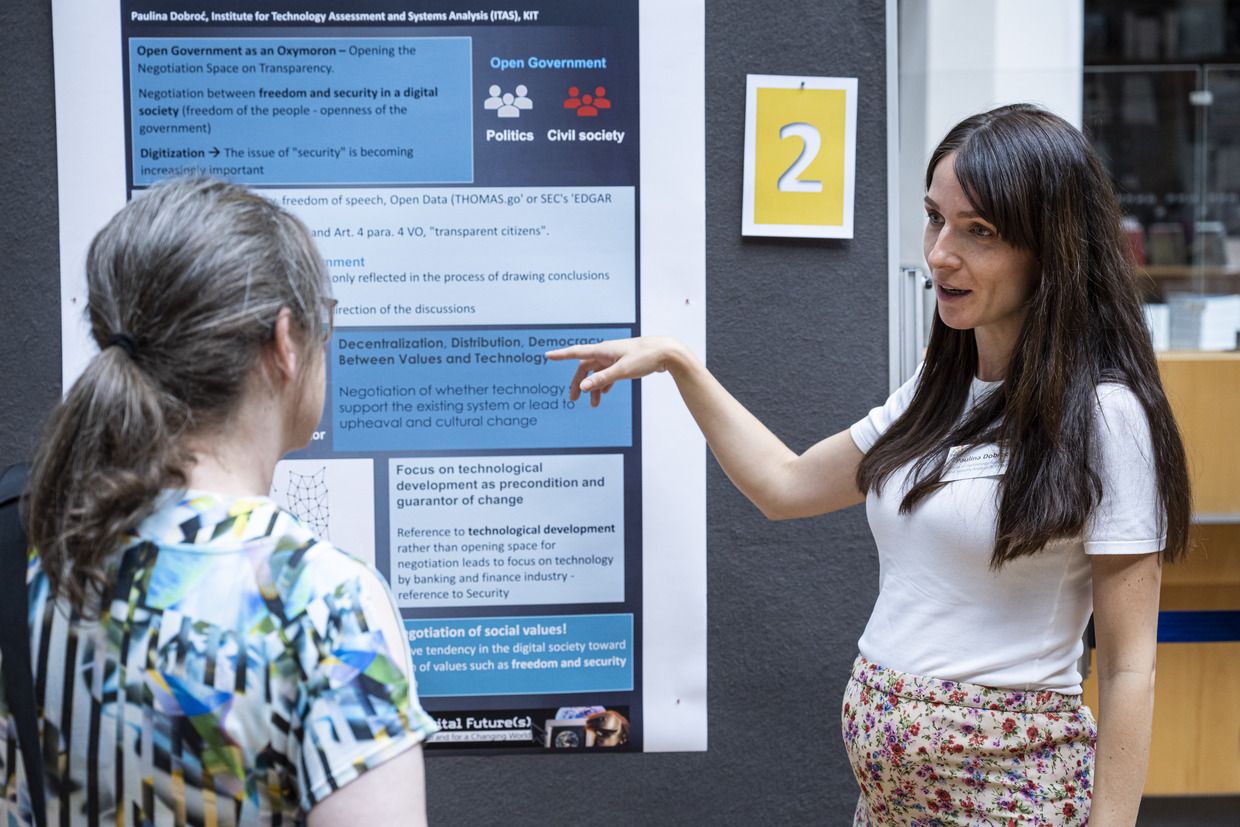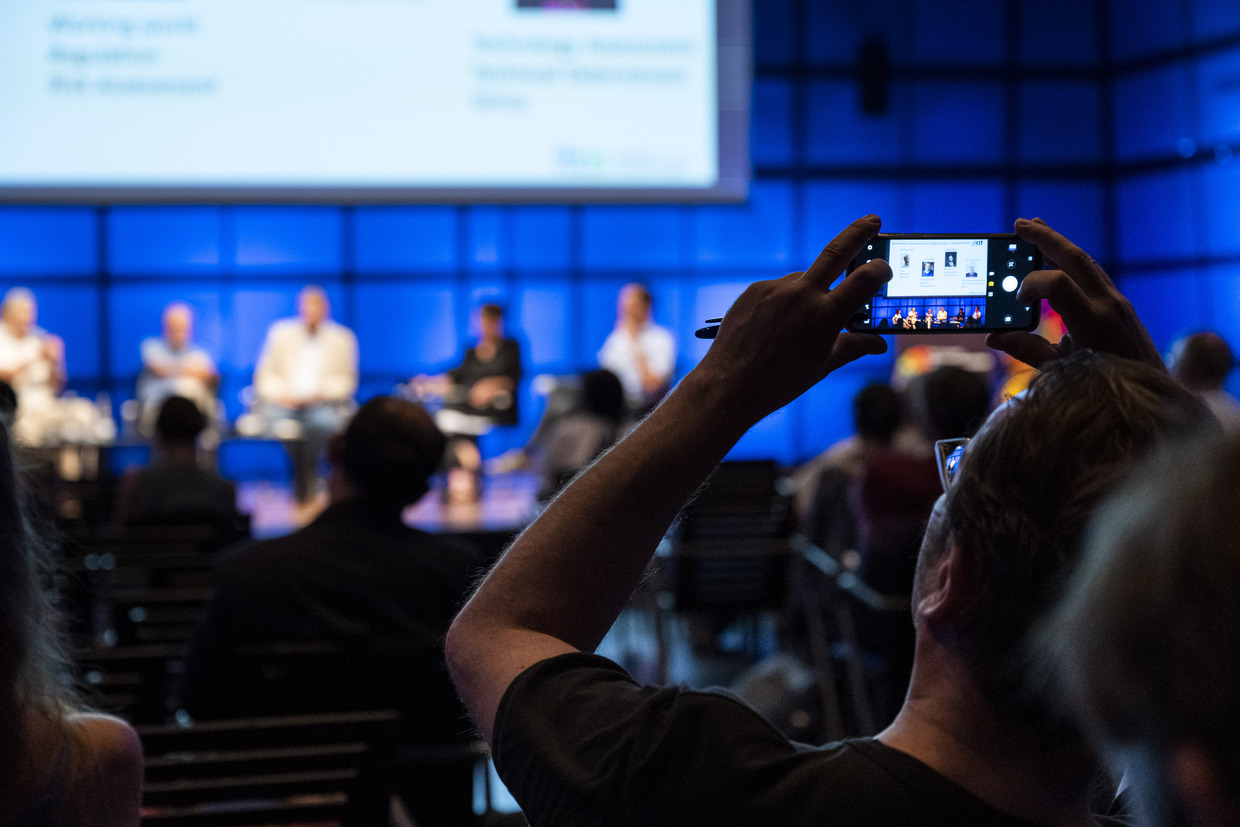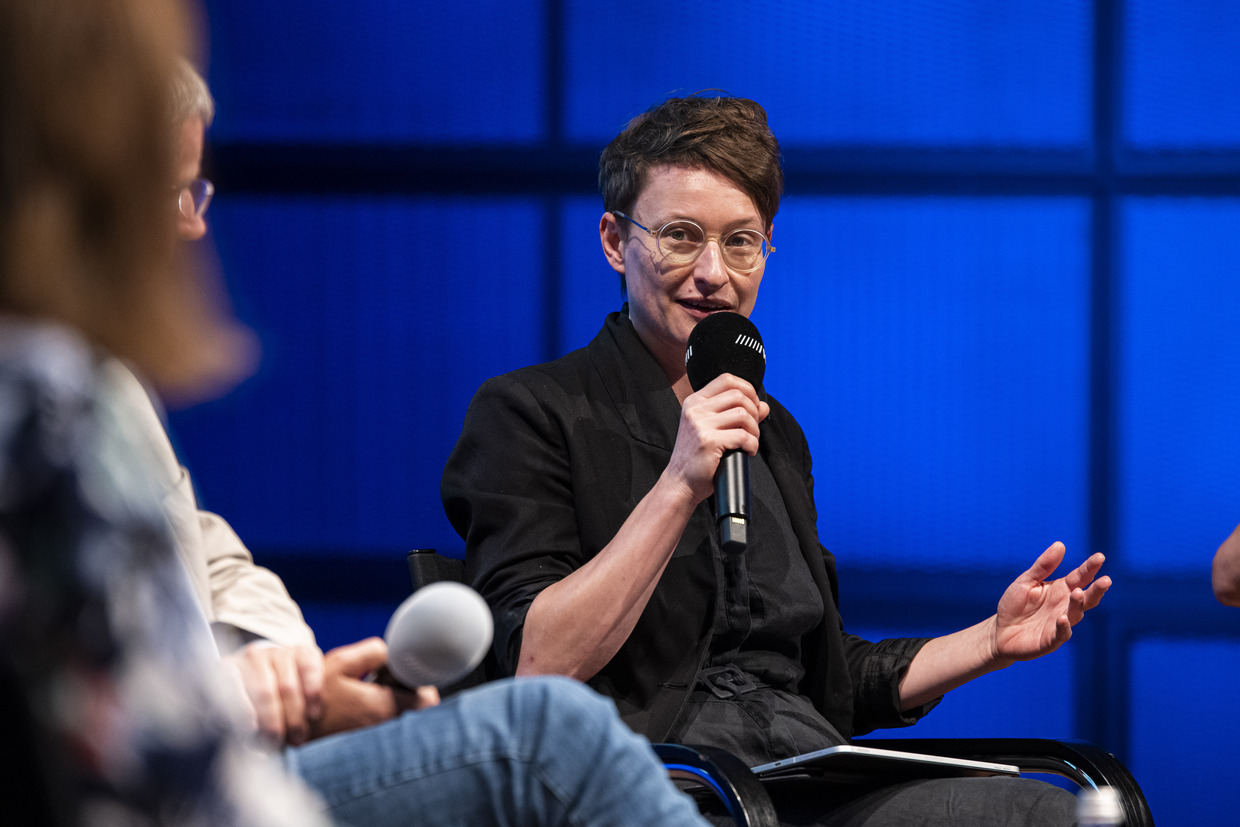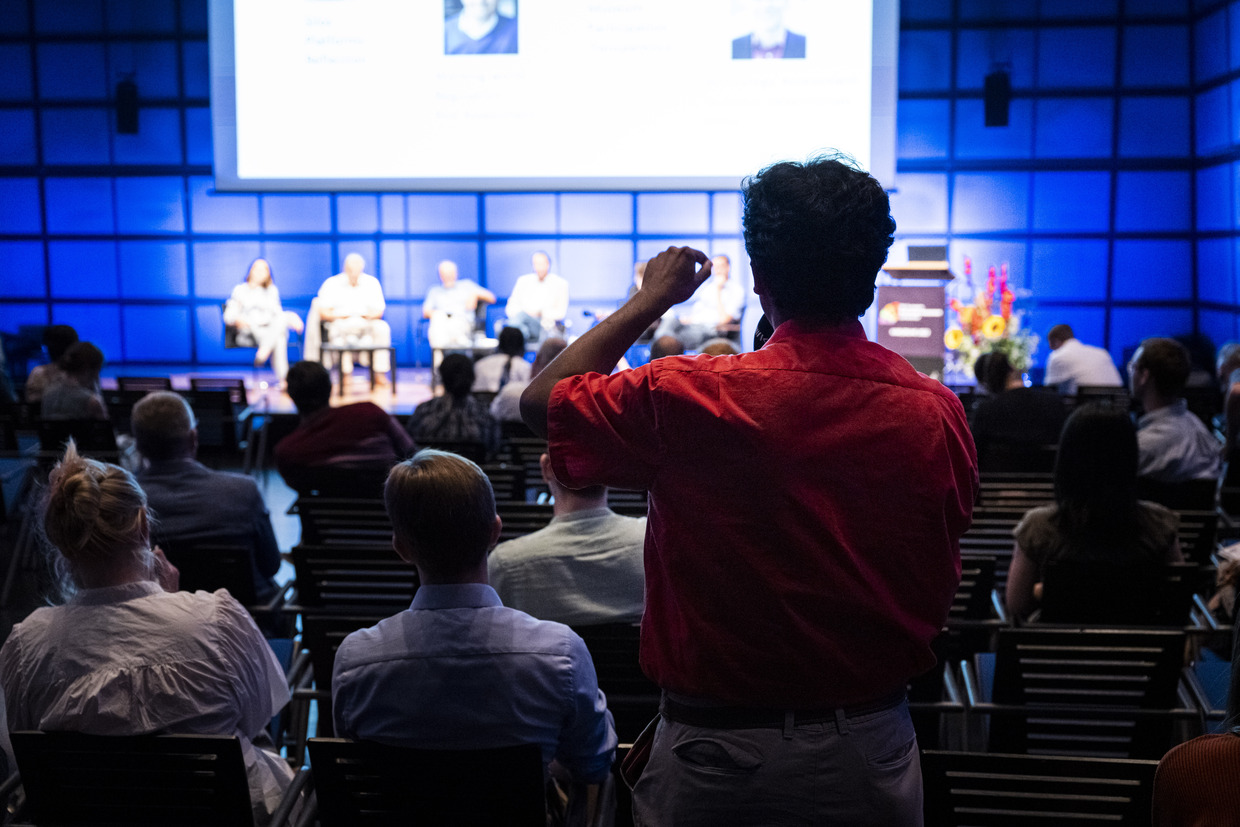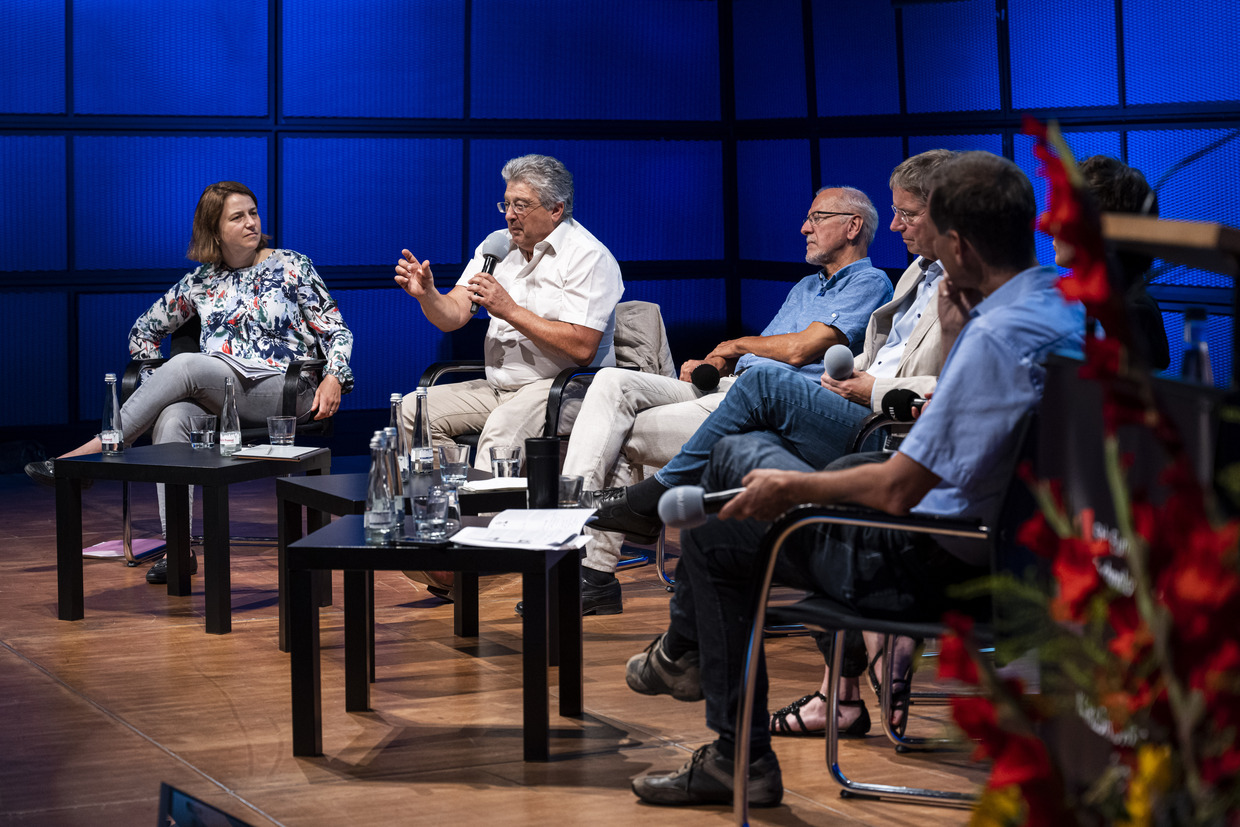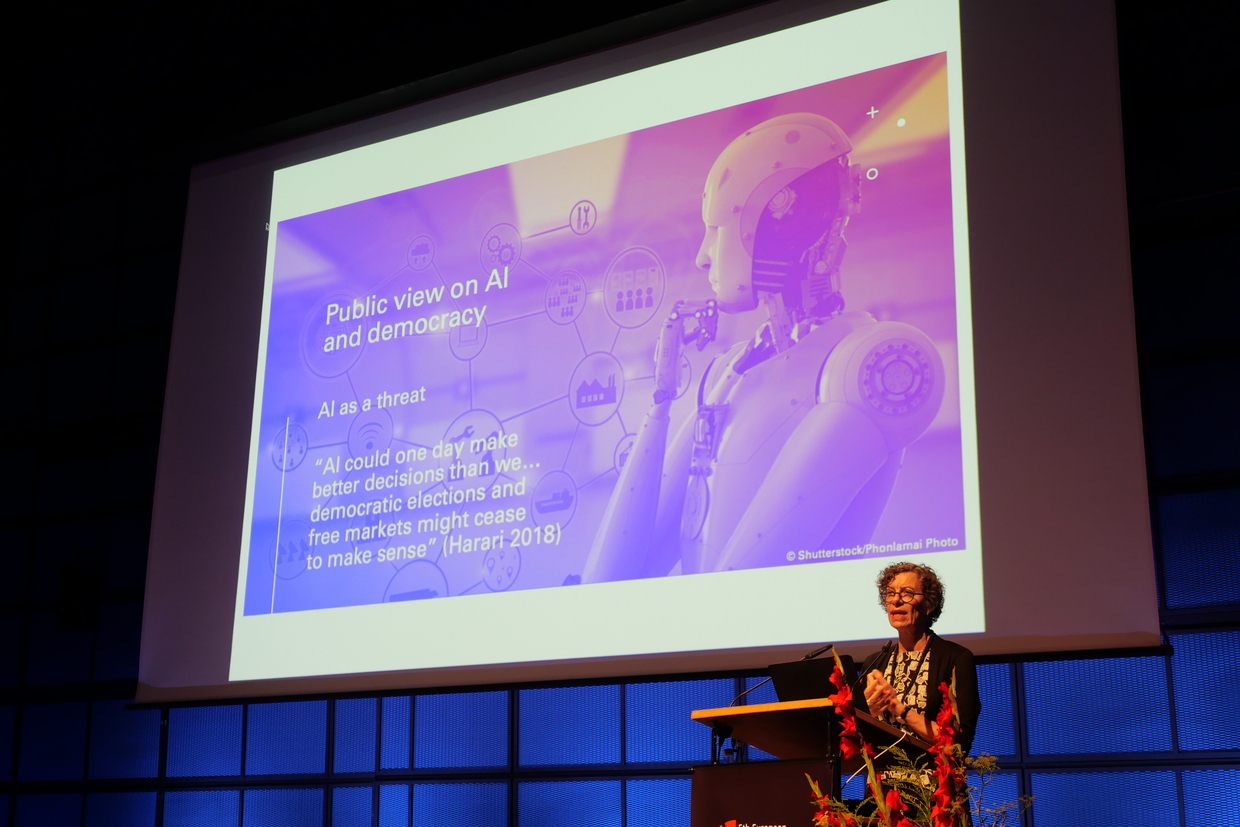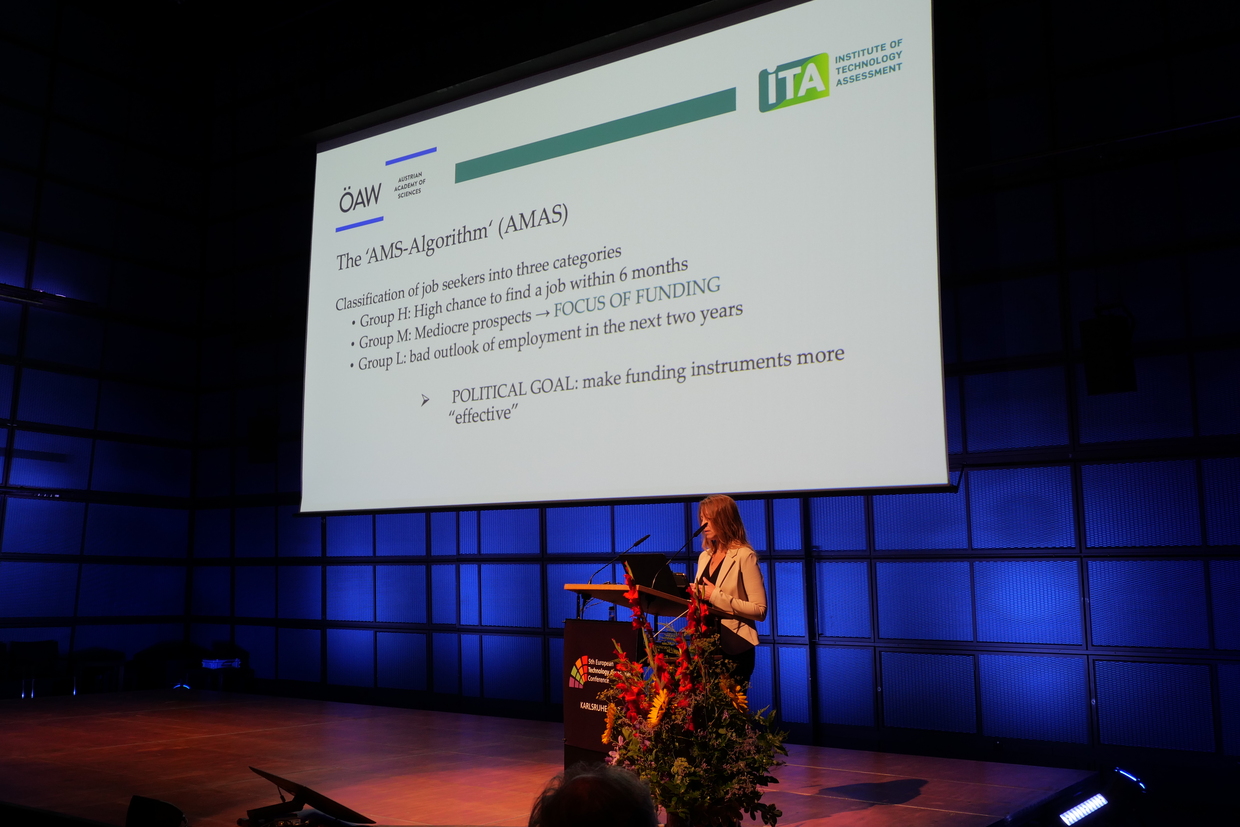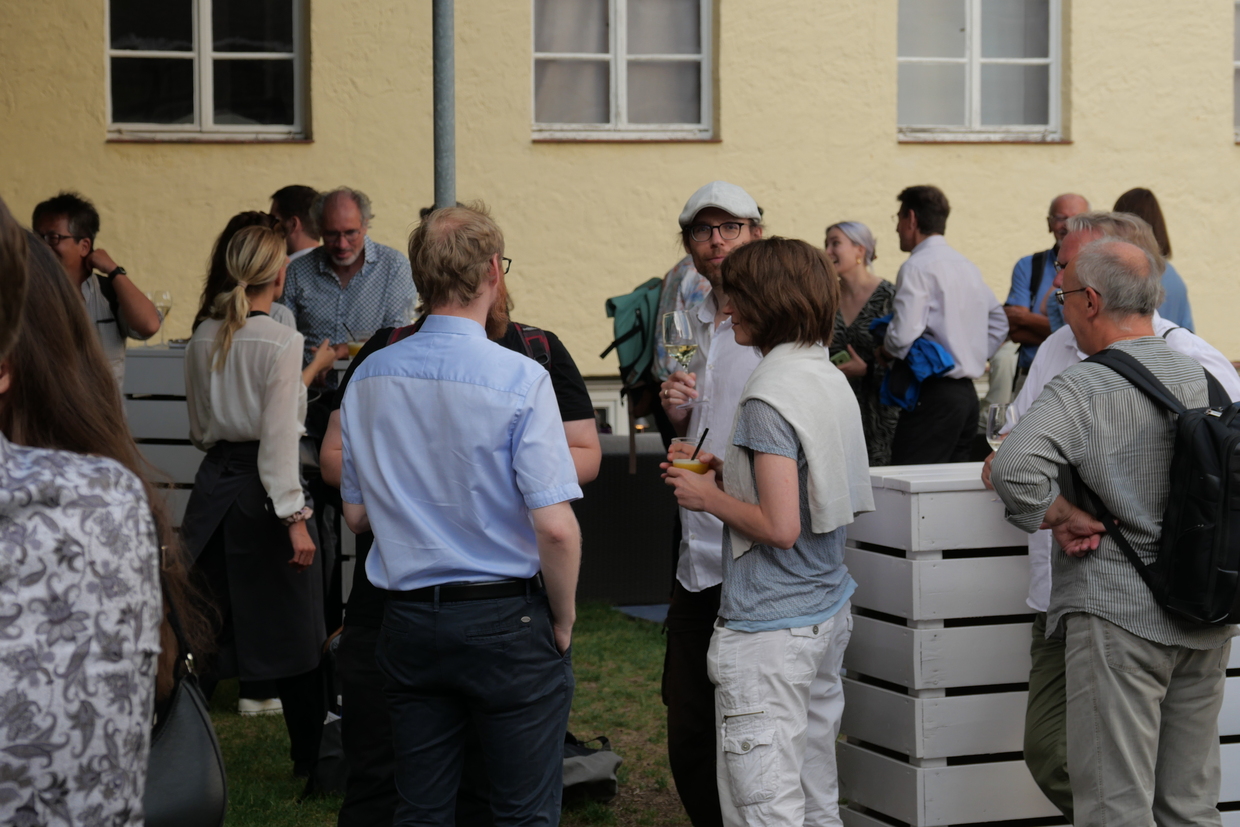ETAC 2022 - Digital Future(s): TA in and for a Changing World
-
type of event:
International Conference
-
place:
ZKM, Lorenzstraße 19, 76135 Karlsruhe, Deutschland
-
date:
25.07.22 - 27.07.22
Conference Report

For more than two decades, we have observed a digital convergence of society, business, public administration, and science. Technology assessment (TA) finds itself in a dual role: On the one hand, it provides orientation for decision makers as to the direction in which the digitalization of entire areas of life could and should go. On the other hand, it is itself affected by global change processes, which has been made clear not least by the COVID-19 pandemic. So it’s time to take a closer look at this relationship – and to do so with international colleagues.
The European TA Conference took place from 25 to 27 July 2022 in Karlsruhe. It was organized and hosted by the Institute for Technology Assessment and Systems Analysis (ITAS) at KIT. The conference venues were the premises of the ZKM Center for Art and Media Karlsruhe, which contributed to an inspiring atmosphere.
The diversity of TA was reflected both in the discussed contents and in different formats of exchange. For example, participants were given the opportunity to listen to different keynotes. The event kicked off with Payal Arora, Professor at Erasmus University Rotterdam, who talked about “Inclusive Design” for “the next billion users.” The focus was on equitable design of digital tools for users from the Global South. She also addressed known misconceptions (“three myths”) and presented inclusive solutions. The second day started with Jeanette Hofmann from Berlin, who, among other things, works in the field of “Politics of Digitalization.” Her presentation focused on different conceptions of democracy and its relationship to digital systems. She traced the path from the old hierarchical understanding of the state, where the individual elements interlock like clockwork, to democracy as a cybernetic learning system. The final keynote was given by Doris Allhutter of the Institute of Technology Assessment (ITA) in Vienna. Allhutter took a look at the digitally supported handling of job seekers in Austria. In this context, the audience learned how algorithms can lead to stigmatization and discrimination of entire groups, for example, when it comes to access to continuing education programs.
In addition to the various keynotes, participants were invited to exchange ideas in the course of discussion and poster sessions. The topics ranged from “The Four Emerging Technologies in the COVID-19 Pandemic” to the energy and mobility sectors to the “Impact of TA and Policy Advice.”
The conference was rounded off by numerous side events. The participants had the opportunity to discover the exhibits of the ZKM or to exchange ideas at a conference dinner in the Cantina Majolika. In addition, a pre-event was already held on Sunday, 24 July 2022 at ITAS. The expert portal openTA had invited the participants to discuss the impact of platformization on technology assessment in a relaxed atmosphere. In addition, approaches for the further development of the expert portal were collected and the evening was visually recorded.
The conference finally ended with a round table discussion on “the Governance of Digital Futures” and the question whether this is “a Pacing Problem.” The guests of the round table discussion were Lars Adolph (Director and Professor of the Federal Institute for Occupational Safety and Health BAuA), Matthias Finger (Professor Emeritus at the École Polytechnique Fédérale de Lausanne [EPFL], Switzerland), Armin Grunwald, Director of ITAS and Professor at the Karlsruhe Institute of Technology (KIT) and Sonja Thiel (historian, philosopher, museum expert, and project manager of “AI & Museum” at the Badisches Landesmuseum).
In keeping with the motto “TA in and for a Changing World,” new approaches to participation were also tried during the conference. For example, the conference was held in a hybrid format. For this purpose, a comprehensive digital platform was provided, which encouraged exchange of views and at the same time served to document the results.
We would like to thank all guests, participants, and partners for a varied and exciting conference and are already looking forward to continuing the exchange at the 6th European TA Conference, which will be hosted by the Institute of Technology Assessment (ITA) of the Austrian Academy of Sciences (OeAW) in Vienna.
Contents
You can find the recordings of the conference keynotes on YouTube:
- Payal Arora - Inclusive Design and the Next Billion
- Jeanette Hofmann - Imagining Democracy Through the Lens of Learning Machines
- Doris Allhutter - Digital Future(s) of Welfare and the Power of Infrastructure
Contact
If you have any questions about the event, please contact Meike Hebich.


